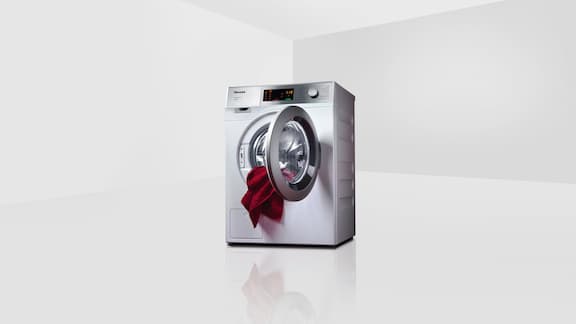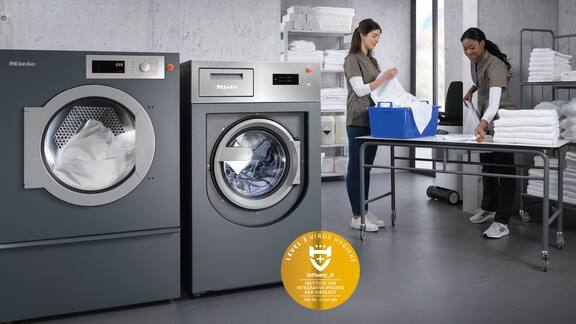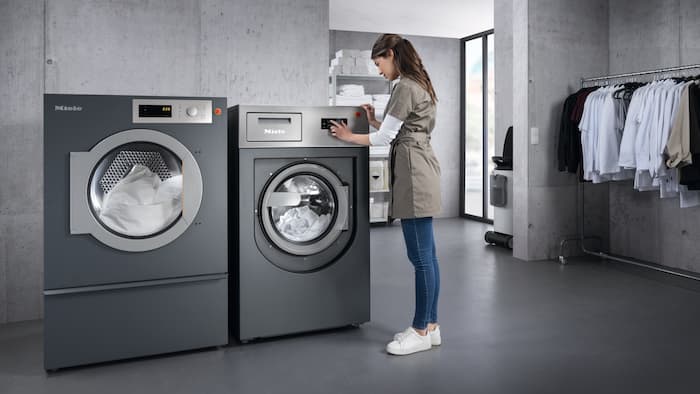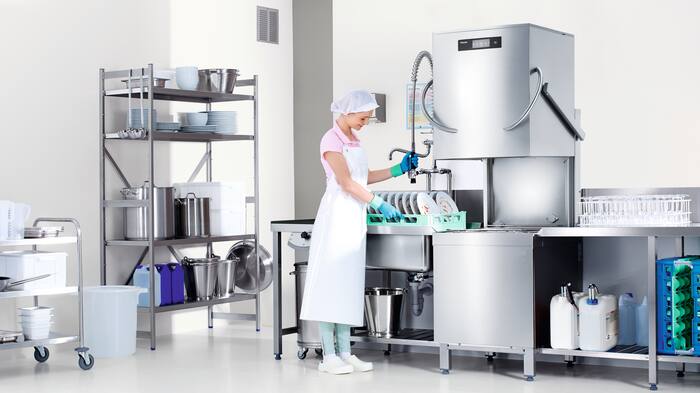
Hygienic reprocessing of laundry outside the healthcare sector
That is why hygienic laundry reprocessing is so important

Whether it's a stomach bug in the nursery, a case of Covid-19 in the family or a guest with a cold in the restaurant who coughs into a serviette: Textiles from a pool used by multiple persons may contain pathogens and contamination which can be passed on to others – if hygienic processing of textiles after use is not guaranteed. In the healthcare sector, disinfecting wash processes to reprocess potentially infectious laundry is mandatory. Outside the healthcare sector, it is perfectly acceptable to dispense with disinfecting wash programmes in everyday laundry care to achieve satisfactory and safe reprocessing.
In many branches, no guidelines on the hygienic reprocessing of textiles exist. Meaning well, many users subscribe to the principle 'the more, the better'. The careless dispensing of disinfectants and disinfecting rinses is not only in contravention of legislation on hazardous substances (e.g. German hazmat law) but also increases the risk of skin rashes and allergies.
Although, admittedly, better results are achieved at higher temperatures, this invariably leads to higher energy consumption and extended cycles. Only the combination of the correct detergent and a temperature suitable for the application ensures the desired hygienic results whilst at the same time taking on board sustainability considerations.
This is the way to hygienically reprocess laundry

Laundry care is a holistic process in which several stages interact in order to achieve hygienic results: Its all starts with the collection of soiled laundry and its transfer to the laundry room. Here, it is important to strictly segregate soiled from clean and reprocessed laundry. If soiled laundry is wet or damp, it should be washed at the earliest possible opportunity. This prevents the growth of microorganisms and prevents the development of unpleasant odours. Not shaking out soiled laundry and the wearing of protective gloves are further recommendations which interrupt possible chains of infection.
In the case of commercial businesses outside the healthcare sector, it is generally sufficient to use the right detergent and programme to ensure hygienic reprocessing. Wash processes at temperatures of at least 60°C in combination with detergents containing bleach reduce microorganisms. Hygienically sensitive laundry, such as bed linen, tea-towels and hand towels, should be reprocessed accordingly.
Even after the wash process, selected measures contribute towards maintaining high levels of hygiene. The first of these measures is the use of a dryer to dry fabrics. Providing the laundry was properly rid of microorganisms in the wash cycle, complete and thorough drying prevents any growth of residual germs. One pre-requisite is the correct load size – thorough drying of excessively large loads cannot be adequately guaranteed.
Any residual moisture remaining in the laundry presents a breeding ground for bacteria, viruses and fungi and can result in unpleasant odours. Consequently, laundry should be unloaded as soon after the completion of the drying process as possible. Care should always be taken to store dried fabrics in a well-aired environment, well out of the way of soiled laundry. This way, laundry remains hygienically clean.
Miele washing machines from the SmartBiz, Little Giants and Benchmark series in combination with ProCare Tex products were awarded the Golden Virus Seal for their hygiene. Anyone wishing to achieve hygienically clean results from the outset should place their trust in a suitable combination of commercial Miele washing machine, detergent, dryer and finishing equipment.

